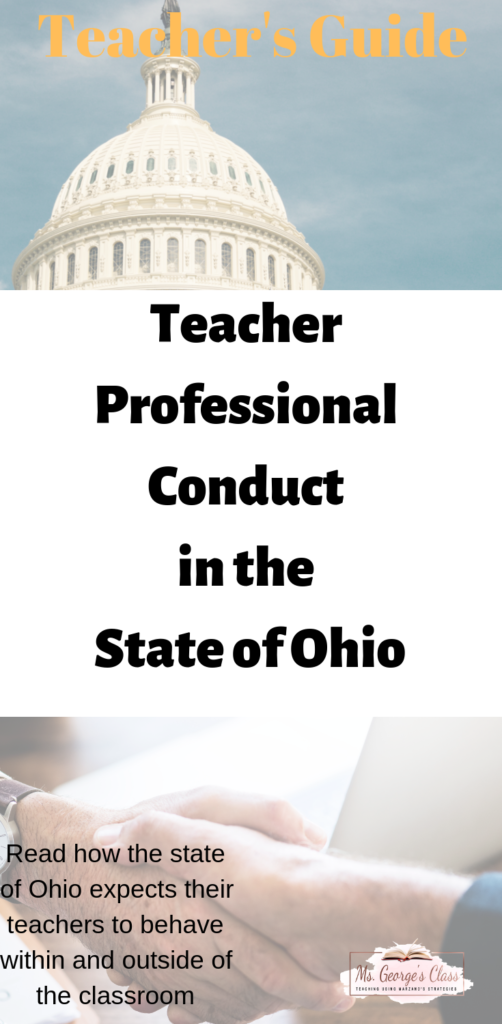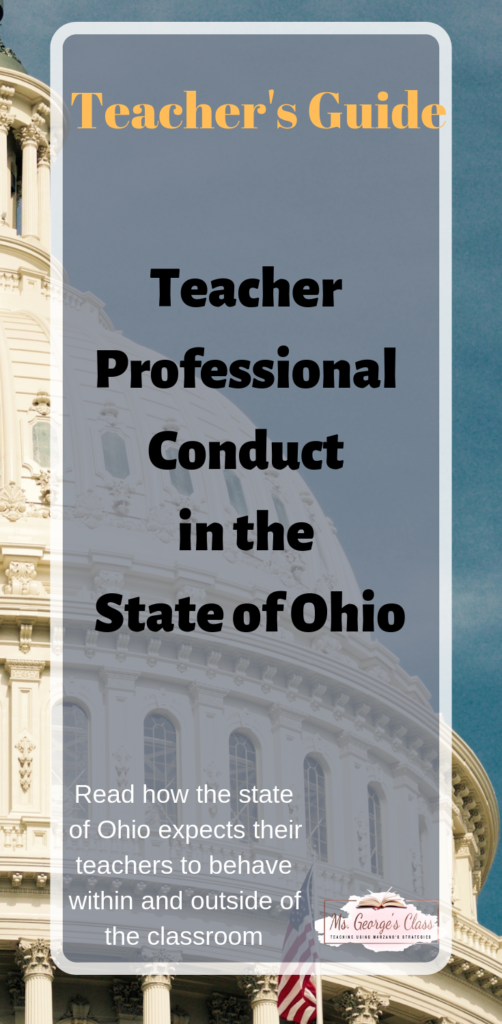
Earning a teaching license can be a joyous moment. After years of higher education, state testing, and meeting your state requirements, you finally receive the documentation to begin your career. While entering into your career, you should be aware of the Professional Conduct Statues and Rules. As a veteran teacher, I researched the information for professional conduct in the State of Ohio, and it was an informative review.
In the state of Ohio, teachers are expected to provide a high quality of education, create a safe and nurturing environment, promote high expectation, attain a positive attitude towards education, and conduct themselves as a trustee of the profession. Lacking in one of these areas can result in the loss of a career or a state issued teaching license. If your state issued teaching license is in the process of being revoked in the State of Ohio, you are given due process.
The due process begins with an educator reported by the district or citizen. The Department of Education will begin an investigation of the educator. If no evidence is found, the process ends. If there is evidence, the educator is entitled to all due process rights. Disciplinary actions may include: suspension of license, letter of admonishment, or entrance into a consent agreement.

How to avoid professional conduct disciplinary actions:
- Behave professionally. Avoid violating any state or federal laws (not including traffic laws), complete your background check, and remember teachers are mandated child abuse and neglect reporters. Not reporting child abuse or neglect can result in disciplinary actions. A huge issue is cheating on standardized tests – avoid this at all cost. Keep social posts in good taste – this violation is becoming more popular.
- Maintain a professional relationship with all students at all times. Keep it very professional with students. Avoid rides home, meeting with students after school, etc. Interactions with students should be positive and free of discrimination.
- Accurately report all required information. College degrees, prior careers, and background checks must be accurate and related to the appropriate teacher.
- Adhere to federal, state, local laws and statutes. Become familiar with laws and statutes. This includes, but is not limited to, drug abuse, fraud, theft, and violence.
- Comply with all laws related to mandatory confidential information. Know the laws when it relates to students’ grades, addresses, IEPs, and 504 Plans. These documents are very sensitive and you have to protect the student and yourself.
- Comply with all laws relating to possessing, distribution, and using illegal drugs and substances. Avoid drugs and illegal substances. If you are caught, you can lose your teaching license, which will be humiliating and embarrassing for you and your family.
- Fees are not for personal gain. As a former junior class advisor, I know how important it is to keep all fundraising money documented. Make appropriate deposits to the school and never mix your money with the school’s money. I was very aware of this because I wanted to build trust and respect within the school community.
- Fulfill all terms and obligations in the employment contract. Learn your teacher contract. Understand how many hours you work, what are the expectations for teaching, and what are the disciplinary action steps on a local level.
Teachers help develop the community of learning. When a teacher’s behavior is inappropriate, it looks bad for the whole profession. In Ohio, they want teachers to perform and behave as a professional person who has attended a higher education institution and can show respect for all people. Teachers must show respect to disable persons, students that are learning the English language, and children who have a behavior disability. Keep this in the forefront of your mind – treat others how you would like to be treated.
Recently in the news, cities and states are passing laws to allow medicinal use of Marijuana. However, many agencies have not changed their rulebooks. To be safe, be of sober mind when at work or at a work function. Don’t lose your license and your career by behaving in a nonprofessional manner.
In conclusion, having longevity in education includes having professional conduct. Teach students in an environment that promotes respect and learning. Keep your private life private and post items on social media in good taste. Understand and adhere to local, state, and federal laws. Taking heed to this sound advice will keep you in good standing with the State of Ohio’s professional conduct office and create a long career. If you have any questions, you can visit http://education.ohio.gov/Topics/Teaching/Educator-Conduct/Office-of-Professional-Conduct-Statutes-and-Rules or view their video on YouTube https://www.youtube.com/watch?v=ETk8lcHJb0Q&t=196s .
Work Cited
“ODE: Code of Professional Conduct (August 2017).” Uploaded by Ohio Department of Education, 17 August 2017, https://www.youtube.com/watch?v=ETk8lcHJb0Q&t=196s





Leave a Reply